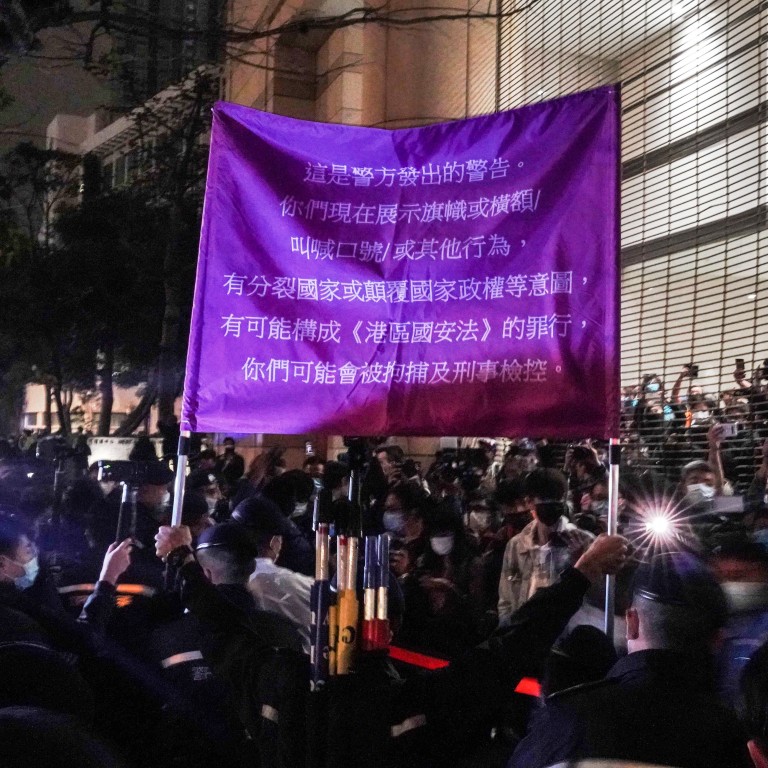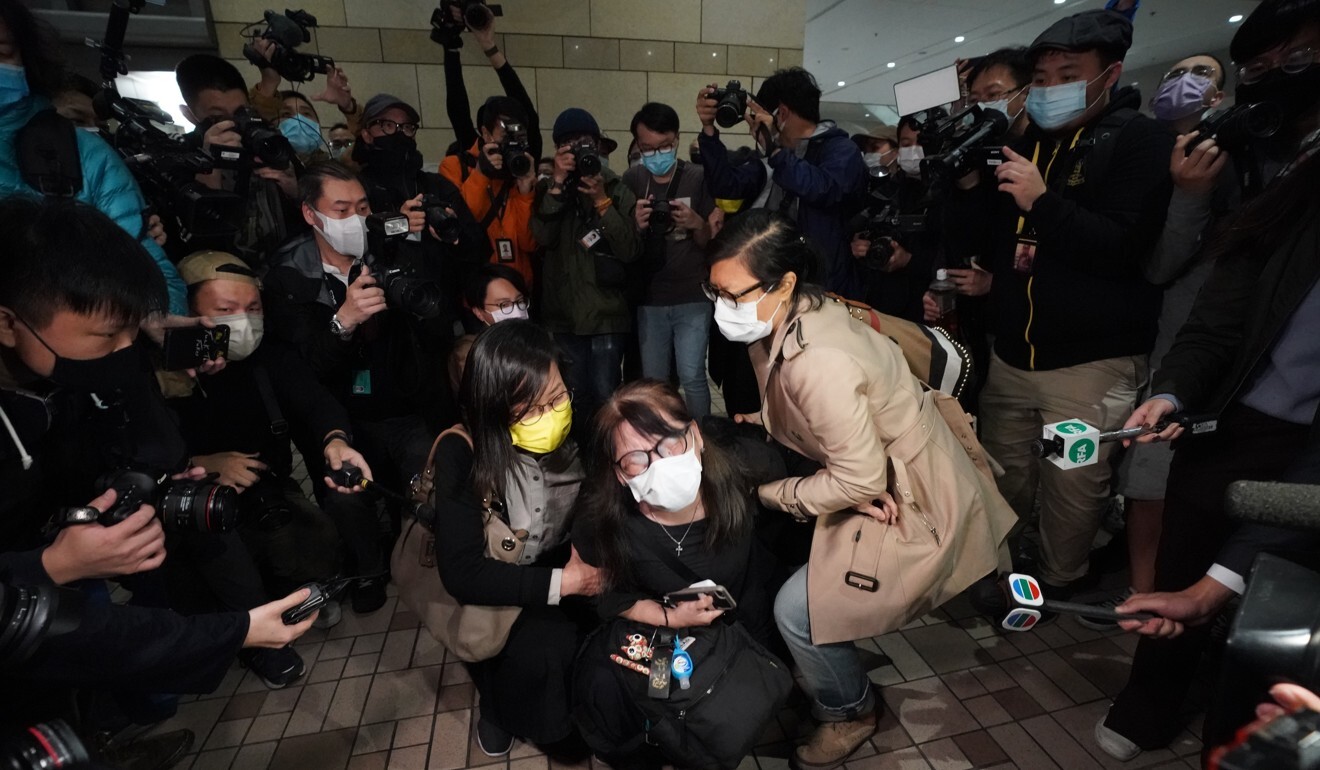
National security law: surprise U-turn as Hong Kong prosecutors drop challenge to four defendants receiving bail in case involving 47 accused opposition activists
- Four among 15 granted bail by a magistrate late on Thursday after a marathon court session
- Barrister Lawrence Lau, social activists Hendrick Lui and Clarisse Yeung, and Mike Lam, owner of Thai products chain AbouThai, released on Thursday evening
But some defence lawyers took issue with the way in which police and prosecutors had handled the case, accusing them of charging their clients prematurely, while a legal scholar feared hasty moves could result in unnecessary prolonged detention without trial.
The four were the only defendants released among the 47 charged with conspiracy to commit subversion in the city’s biggest national security case to date. They were barrister Lawrence Lau Wai-chung, social activists Hendrick Lui Chi-hang and Clarisse Yeung Suet-ying, and Mike Lam King-nam, owner of Thai-products chain AbouThai. The other 11 granted bail but remanded in custody will appear in court on Saturday.
Prosecutors accused the 47 of plotting to seize control of the city’s legislature by organising a primary last year, with an aim to ultimately paralyse the government and topple the city’s leader.
Upon their release at West Kowloon Court, the four posed individually for photographs amid a media scrum. They were the first defendants to have successfully secured bail since Beijing imposed the law in the city in late June last year.

They thanked their supporters, who chanted slogans outside the court, but said little else to comply with strict bail conditions.
“I am very tired. I miss my family so much,” Lam said, before embracing his tearful wife.
Lui wished everyone peace and a fair hearing for the other defendants. Holding back tears, his mother hoped others would also get bail.
Maggie Yang Mei-kei, deputy director of public prosecutions, informed the court about the withdrawal without specifying the reason, only insisting it was done “without undermining the seriousness of the charge”.
A Department of Justice spokesman said it was “not appropriate” to comment on ongoing proceedings.
The four forked out cash bail of between HK$80,000 and HK$1 million and surrendered all travel documents. Under their bail conditions, they must not say or do anything which could be deemed as endangering national security through social media platforms or any publications, they must stay away from all forms of elections, and cannot get in touch with foreign officials or legislators.
The Facebook pages of some defendants, such as former Civic Party lawmakers Alvin Yeung Ngor-kiu, Jeremy Tam Man-ho and Kwok Ka-ki, were no longer accessible.
The other 11 granted bail will be brought before Madam Justice Esther Toh Lye-ping of the Court of First Instance for another hearing on Saturday. It was the first time Toh was revealed to be among an unpublished list of judges designated to preside over national security cases.
Following a four-day court session, which left some of the 47 defendants sleep-deprived and even hospitalised, Chief Magistrate Victor So Wai-tak on Thursday granted bail to 15.
But almost immediately after the ruling, he ordered all 47 to be locked up again, as the prosecutors had lodged an application against his decision.
The 47 – among them former lawmakers and district councillors – were the latest, and biggest, batch of opposition figures charged under the national security law.
The justice department’s move on Thursday to challenge the bail decision drew the ire of the defendants’ supporters.
In a statement, the department’s spokesman noted that under the law it had the power to ask a judge to review a magistrate’s bail decision, and require a defendant to be remanded in the meantime.
“The DoJ will not tolerate the malicious attacks on the decision which was made in accordance with the law,” he said, adding that members of the public should refrain from commenting on any case in which the legal proceedings were still ongoing.
But one of the defence lawyers, who spoke to the Post anonymously, accused the prosecutors and police of pressing ahead without a thorough investigation, resulting in the need for a three-month adjournment now.
Another lawyer said he had not yet been given many details about evidence in the case.
Human rights law scholar Johannes Chan Man-mun of the University of Hong Kong said the accused would have to prove they would not endanger national security while on bail. That was a higher hurdle than the presumption of bail under the city’s common law system, he told a radio programme. Chan feared it would encourage the authorities to press charges with the aim of locking up defendants, without regard to the prospect of a successful prosecution.
But former director of public prosecutions Grenville Cross disagreed, saying the adjournment in the present case was appropriate as it involved a large number of defendants.

